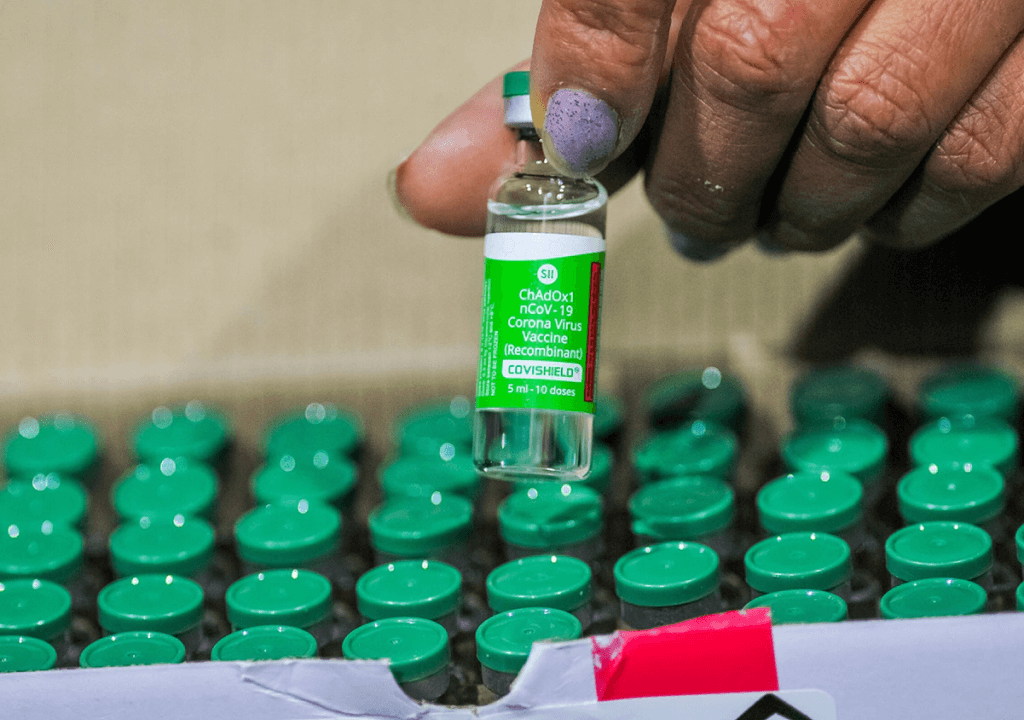In a country with a significant conservative and religious population, the world’s largest and most successful COVID-19 vaccination drive was conducted. Despite doubts within religious communities about the unknown liquid being injected as a population control measure, and within the scientific community regarding the vaccine’s insufficient testing, nearly 95% of India’s eligible population received vaccinations. This drive was a huge success because people believed in Narendra Modi, who led the campaign. Narendra Modi conducted extensive campaigns, publishing images of himself receiving vaccines and urging everyone to get vaccinated. He touted this massive vaccination drive as one of his biggest achievements and issued certificates for vaccine recipients with his own prominent image on them. In the subsequent state elections, Narendra Modi benefited from the COVID-19 vaccination campaigns. However, during the crucial time of the Lok Sabha elections, after only two phases out of seven had been completed, the COVID-19 vaccination drive gained mainstream again, but not in Modi’s favor.
With the approval of several vaccines in India, the Covishield vaccine, initially developed by Oxford–AstraZeneca and manufactured under license by the Serum Institute of India, emerged as the preferred choice for most individuals. At a time when the world was gripped by fear of the deadly COVID-19 virus, the Serum Institute stepped up production, delivering a significant number of vaccine doses. Modi faced pressure from international media and opposition parties, who criticized the Indian government for inaccurate death counts. Consequently, when the WHO authorized the vaccine, the Modi government swiftly introduced it to the people, leading to a massive COVID-19 vaccination drive that astounded the world. Modi consistently stressed the significance of vaccinations and initiated programs to encourage people to participate in the COVID-19 vaccination drive. Modi and the managing director of the Pune Serum Institute, Cyrus Poonawalla, became stars and sensations in Indian newspapers. Modi’s image was displayed on certificates, vaccination centers, and wherever possible. Modi further condemned political parties and leaders who expressed doubts about vaccines, including his strong criticism of the Samajwadi Party and its leader Akhilesh Yadav, who raised concerns about large-scale vaccination drives without thoroughly examining potential side effects. The principal opposition party, the Indian National Congress, faced humiliation as Modi vaccinated the majority of the population, dismissing any reservations they voiced. Those who questioned the vaccine were branded as anti-national. In the eyes of the Indian populace, Modi emerged as a superhero, revered as the savior who safeguarded them from the deadly Coronavirus.
But as the COVID virus receded from the news headlines, people started to question the side effects of the virus. They began to doubt the increased cases of heart attacks and brain damage, even among youths. Conspiracy theories emerged, while the government and government-linked medical associations denied them all. However, during a crucial time, on the occasion of the General election in which Modi sought a continuous third term, the situation took a turn. As the vaccine developer, AstraZeneca admitted in a British court that the vaccine had some side effects that could cause hemorrhage in rare cases, prompting almost 52 people to join a petition in the British court. The opposition parties and social media erupted in rage against Modi, dealing a setback to his aspirations for a third term as Prime Minister. The Indian National Congress hit Narendra Modi hard because the government had not addressed the issue yet, despite having information about the side effects. The government failed to take actions to study and address the issue. The Samajwadi Party, which had questioned vaccines during the vaccination drive, was now mocking Modi and the BJP. Cyberspace attacked Modi more furiously, with Twitter hashtags like #ArrestModi trending, and many people expressing concerns. This is likely to influence Indian voters, who are highly emotional. Interestingly, neither Modi nor the government has made any statements in response, They are neglecting it and viewing it as an attempt to alter the election scenario.
The doubts surrounding the COVID virus, such as its origin, original impact, and whether it is a biological weapon, as well as concerns about vaccines, remain entrenched in conspiracy theories. In India, the COVID-19 vaccine has become a political tool, with numerous accusations directed at both the vaccine and its manufacturer, the Serum Institute. The Institute is accused of providing funds to the BJP through the election bond scheme, highlighting systemic corruption issues. However, government supporters affirm that the COVID-19 virus saves lives and provides immunity for people, with side effects being very rare compared to the number of people who have received the vaccines. Despite this, people, especially in cyberspace, continue to share their fears. This is an issue the government must acknowledge and will likely impact future vaccination drives. As petitions are filed in Indian courts, any comments from the court will undoubtedly affect the Indian populace and, consequently, Indian General election.








